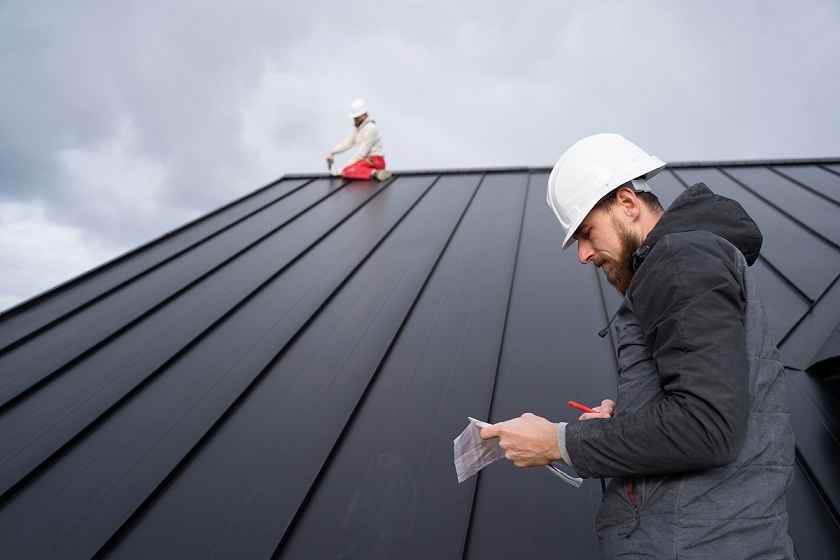With the rise of climate change and dwindling finite materials, the need for sustainable energy solutions has never been greater. Solar energy is one of the most accessible and efficient forms of renewable energy available. There is, however, one dilemma that often presents itself to many homeowners or owners of farmland alike; where should the solar panels go, on a house roof, or even a barn roof?
Choices for Installing Solar Panels on Your Roof

What Are the Types of Common Installations?
Solar panels can be installed in a number of places, with each location having its own advantages and disadvantages. The two primary types are:
Roof-mounted: Installing solar panels on the roof is common for house structures, barns and other commercial buildings.
Typically used in places where roof installations aren’t available, ground-mounted systems are installed on the ground.
Why Consider Solar Panels?

There are many reasons to install solar panels and the decision to do so typically comes down to these few motivators:
Environmental advantages: Solar energy is clean, which minimizes dependence on fossil fuels and carbon emissions.
Long Run Financial Savings: The initial investment can be really high, but ultimately solar investing will save you a lot of money by decreasing the expense of electric bills over time.
Energy independence: By harnessing solar power, you will reduce reliance on utility companies and become more resilient to power outages.
Advantages and Disadvantages of Putting Solar Energy Panels on the Roof of a House
Advantages
- Here are a few benefits of installing solar panels on your house roof:
- Repurposes unused space: It uses a previously unused space — the roof — as an energy production facility.
- Boosts property value: Solar PV installations often increase the value of the home.
- The easier integration with existing electrical systems: This can simplify the installation and also reduce costs.
- Tax credits and incentives: Many governments provide you with financial incentives to encourage you to go solar.
Disadvantages
But there are also significant downsides:
ROOF SUITABILITY ISSUES — Not all roofs are suitable due to shading, orientation, structural limitations etc.
Maintenance problems: Cleaning and repairing high roofs can be more challenging and hazardous, especially if scaffolding or specialized equipment is required for roof access.
Limited scalability: The amount of solar energy you can generate is limited to the size of your roof, which may fall short for larger energy needs.
Thinking About Installing Solar Panels on Your Barn?

The Structural Suitability of Barns
- Before you even think about how to put solar panels on a barn, you need to consider:
- Stability — Barns differ in strength, which can affect how appropriate they are for solar panels.
- Barn Types = Solar Potential: Some types of roofs – gable or gambrel, for example – provide optimal conditions for a solar installation.
Benefits of Barn-Based Solar Systems
- Ground-mount solar shade can pair well with other structures on the property.
- Greater Surface Area: Barns often have expansive roofs and can fit more panels than traditional residential roofs.
- Maintenance Made Easier: Some barns are lower than house roofs which means they are easier to maintain.
- Capabilities to run barn equipment: If you want things like lights or water pumps in your barn, solar can be a great solution.
You may also read (why regular roof inspections essential homeowners)
Challenges
But putting solar panels atop barns raises its own set of complications:
Excerpt some structure upgrading: Older barns likely require considerable bracing before they can bear the weight of solar panels on top.
Shading problems: Similar to house roofs, barns can also be the target of shading that dramatically reduces the performance of solar panels.
Alternative Option: Ground-Mounted Solar Panels
Ground-Mounted System Guide
If your roof isn’t an option, a ground-mounted system can be just as good. They are set up as panels lying directly on the ground, making for excellent placement and angle to the sun.
Benefits
Best sun treatment: These systems can be positioned to get the best sunlight, resulting in more energy efficiency.
Easier to maintain and clean — Upward-facing is not at all easy to maintain, as that kind of system has extremely poor accessibility.
Less dependency on roof conditions: Ground systems do not rely on the structural integrity of a building which makes them great for a wider range of properties.
Drawbacks
- Need more room: They need more land and may not fit in smaller properties.
- Higher initial costs: Additional structure needs and wiring and cabling can lead to higher up front costs.
- Factors Which Should Guide You On Weather To Go For Roof Or Barn Installations
- The following variables come into play when choosing whether to put solar panels on your house roof or your barn:
Sunlight Access
Orientation matters: Panels are generally at their best when facing south.
Shade Avoidance: Make sure that there are no tall shade casting structures such as trees or other buildings around that could limit the solar access to the solar panels.
Energy Needs
Evaluate your energy usage: Knowing how much energy you consume helps you decide how many solar panels you’ll need and where they should go to help you achieve your energy goals.
Cost Analysis
Assess the installation costs: Installing both options varies significantly in terms of what they’ll cost, which can influence their recurring maintenance and repair costs.
Assess for the long game How will the cost-absorbing investment pay off over time, including energy savings and property value increases?
Permits and Regulations
Local zoning: Some neighborhoods or cities may have particular rules about whether you can install solar panels.
Analyzing the Potential: Roof Over Barn vs Roof Over House
| Feature | House Roof Installation | Barn Roof Installation |
|---|---|---|
| Space Availability | Limited by house size | Larger surface area available |
| Structural Suitability | May require reinforcement | Depends on barn condition |
| Maintenance | Difficult due to height | Easier access in many cases |
| Energy Output | Varies based on shading | Often higher due to open space |
Installing Solar Panels on a Barn: Practical Tips
- Here are some actions you can take to ensure a successful solar panel installation on a barn:
- Perform a structural review: Verify that the barn can bear the increased load of the panels.
- Place the panel in the best orientation: Depending on where you are on the planet, look into the best angles.
- Have a plan for battery storage: If you opt for going off-grid, don’t forget to factor in how you plan to store excess energy with battery storage.
- Allocation for maintenance: Regular maintenance can significantly increase the efficiency and lifespan of your solar panels.
Success Stories of Barn-Based Solar Systems: Real-Life Case Studies
Example: A Farm
Successfully implemented sustainability practices, such as a local farm that had solar panels mounted to their barn roof to reduce energy bills and carbon footprint by powering their irrigation systems with solar energy.
Example : An Event Venue
Starting with commercial — a barn converted into an event venue that utilizes solar panels for absolutely all of its lighting throughout the premises, proving how adaptable and capable solar can be, even in the professional realm.
What is LLM? A — LLM stands for Large Language Model.
How Much Do Solar Panel Barns Cost?
- The costs can vary, but can be anywhere from $10,000 to $50,000 depending on the size and complexity of the systems.
- Are there special considerations for barns regarding solar panels?
- Yes, some barns will need to fortify their structures in order to safely hold the weight of solar panels.
- July 29, 2023 Can barn solar panels power my whole house?
So with enough panel capacity and the right energy management, this is possible: you can run home utilities on barn-mounted solar energy.
Conclusion
Many different factors will affect your decision on whether to put solar panels on your house roof or your barn, including structural soundness, energy needs, and of course costs. A smart choice is one that suits not just your energy efficiency needs, but your goals as a homeowner or business owner, so understanding where to go for each option can really make a difference.
You may also read (what can i do to keep squirrels off my roof)




